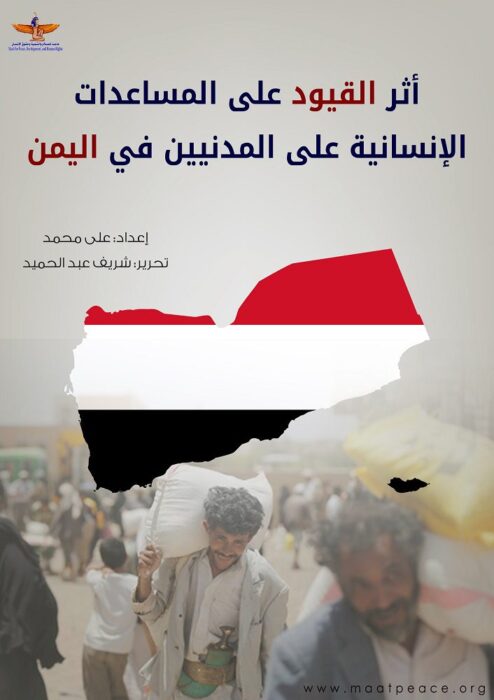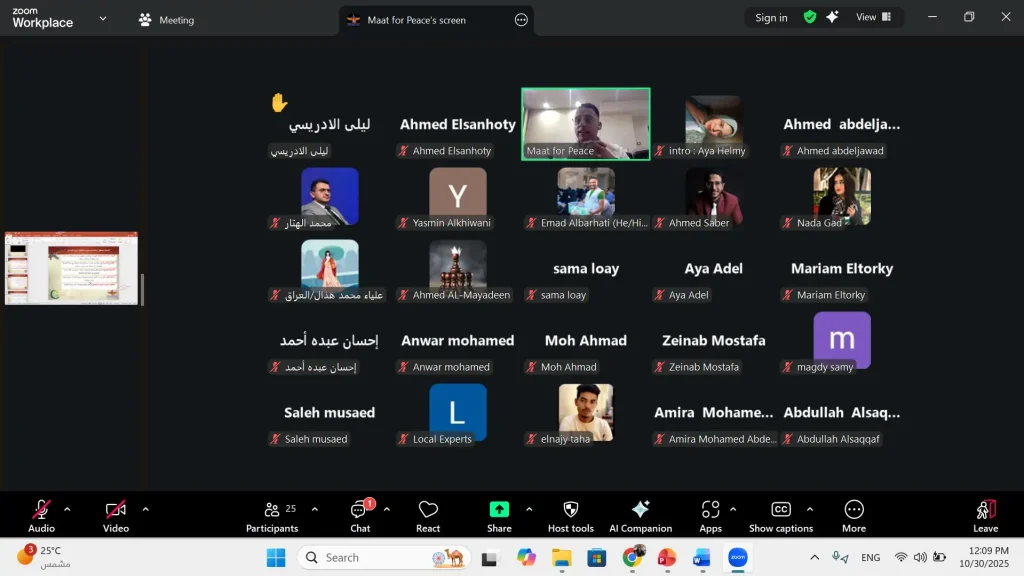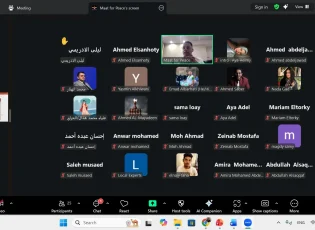Okeil: The Houthi militia is the main reason why donors cut off funding for some humanitarian and relief programs in Yemen
Ali Muhammad: The Houthi militia is using starvation as a weapon against civilians in the conflict in Yemen
Maat for Peace, Development and Human Rights issued a new report entitled "The Implications of Restrictions on Humanitarian Aid to Civilians in Yemen", which clarifies the restrictions imposed on the entry of humanitarian aid in Yemen, especially by the Houthi militia, which does not only arrest and intimidate humanitarian workers, but also illegally intercept and use humanitarian aid. The report revealed that since the Houthi militia took control of the capital, Sana’a, on September 21, 2014, and the Arab Coalition engagement in the fight alongside the legitimate government in Yemen against the Houthis in March 2015, these conditions have affected the vast majority of Yemenis, especially women and children. This has left more than 24 million people, that is over 80% of the population, in need of humanitarian assistance and every form of protection, including medical care or food assistance among other aids, and left about 14.4 million in dire need of such assistance. .
The report stressed that humanitarian aid, which is supervised by humanitarian organizations and UN bodies, faced countless obstacles and challenges in order to reach the deserving groups affected armed conflicts, which exacerbated the suffering of Yemeni citizens, especially in Sana’a and in the northern governorates controlled by the Houthis, where the relief items were intercepted and seized by the Houthis. Even worse, several restrictions have been imposed on the work of humanitarian organizations in Sana’a and in areas under their control. Such restrictions and challenges have caused the reduction and suspension of 15 humanitarian aid programs in Yemen earlier, due to the lack of funding, and the continuation of 30 other programs became dependent on the Houthis removal of the restrictions they imposed to control humanitarian aid.
The report indicated that in addition to the restrictions imposed on the entry of humanitarian aid into Yemen, the Houthi militia has intercepted and seized huge amounts of the aid that was allowed to enter, preventing the beneficiaries to have access to such aid, and consequently, impacting the lives of Yemenis, who are suffering from food insecurity and deteriorating health system.
In this context, Ayman Okeil, President of Maat, stated that international humanitarian law grants civilians in armed conflicts the right to protection and access to humanitarian aid during war, prevents the parties to the conflict from restricting and intercepting relief operations, and urges the parties to the conflict, whether from countries and other non-state actors, to provide prompt and unobstructed assistance, and facilitate its passage to civilians in greatest need. Okeil added that the humanitarian needs required for Yemen were estimated last year at about 3.2 billion US dollars, of which 2.41 billion dollars are required to cover humanitarian activities in the period from June to the end of December 2020, and that only 588 out of the 1.35 billion dollars pledged by the countries participating in the Yemen Donors Conference on June 2, 2020, in Riyadh, have reached relief organizations, agencies and UN bodies. But even these pledges were not sufficient to cover the full humanitarian needs according to the Yemen Humanitarian Response Plan 2020, as there was a funding gap of at least one billion dollars. The Yemen Humanitarian Response Plan 2021 was estimated at $3.85 billion, of which only 43 percent was funded.
The president of Maat added that this lack of funding is attributed to several factors, including the donors’ lack of confidence that humanitarian aid is reaching its beneficiaries in light of the restrictions imposed by the Houthi militia, which is the main reason for donors stopping their funding for some humanitarian and relief programs in Yemen.
For his part, Ali Muhammad, a researcher at Maat, said that the Houthi militia imposes several obstacles on the distribution of humanitarian aid in order to control the groups that the aid reaches, and the organizations that distribute it, and use starvation as a weapon against civilians in the ongoing armed conflict between it and the Arab coalition to support legitimacy in Yemen, in contravention of international treaties and charters, including the provisions and principles of international humanitarian law. Mohammed added that the Houthis distribute huge amounts of the aid they seize to their fighters, fighting whether against the Arab coalition to support legitimacy or the Yemeni army, and they are also putting other amounts of aid on the black market for sale, and use its revenue to finance armed combat operations. The Houthi militia has also carried out theft and looting of humanitarian aid, even in light of the emerging Coronavirus pandemic.
![]()
 |
shortlink: https://maatpeace.org/en/?p=33505












